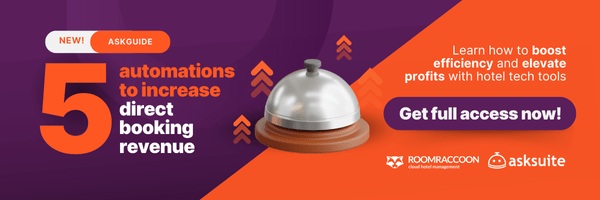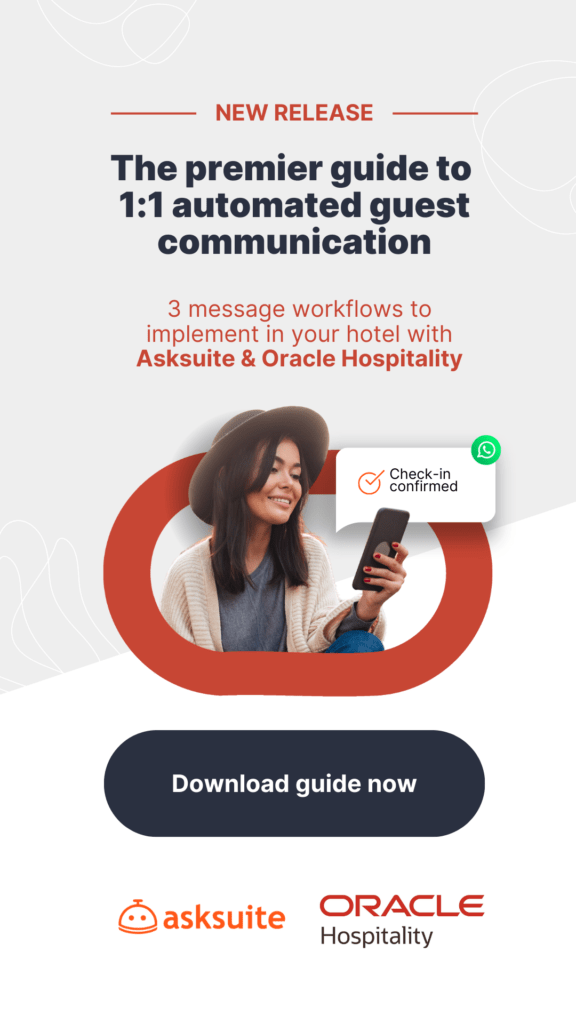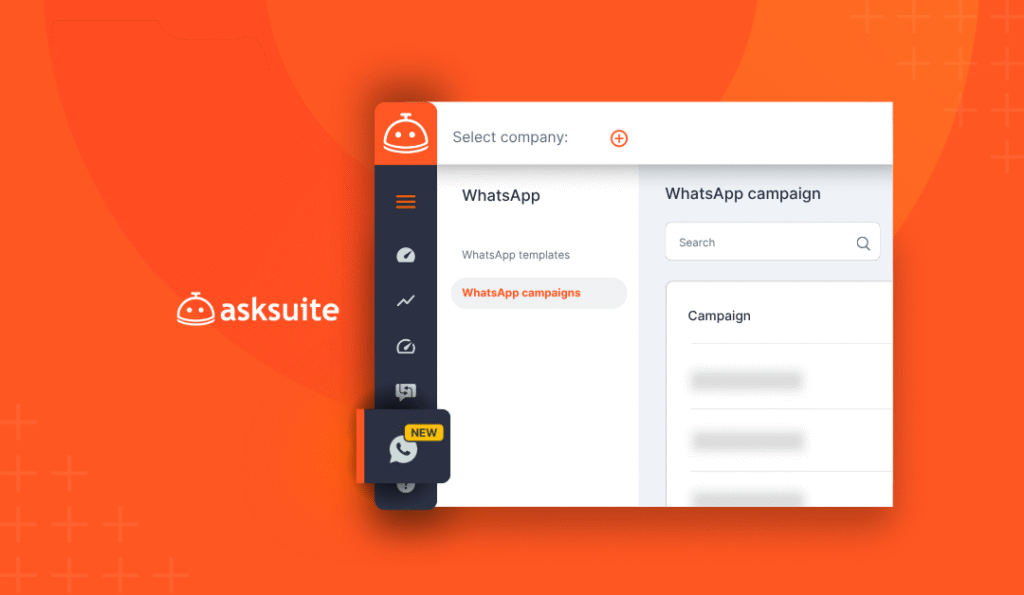Unlock the potential of your hotel with these essential revenue management strategies. Learn how to optimize pricing, enhance guest experiences, and boost profitability through smart, data-driven decisions.
Revenue management strategies is getting a lot of attention in the hotel industry as the hospitality demand is growing quickly, requiring top-tier strategies to remain sustainable. With tourism expected to generate over US$ 11 trillion and create nearly 358 million job opportunities in 2024 alone, there’s plenty of room to explore new revenue streams and fully capitalize on this high demand.
To achieve outstanding results and ride this wave of growth, your hotel needs to implement smart revenue management strategies. If you’ve heard of revenue management but are still unclear on what it entails and how it works in the hospitality industry, this article is for you. It offers an easy-to-follow explanation of everything you need to know and how you can benefit from these strategies.
Let’s dive in!
What is hotel revenue management?
Revenue management is a methodology that combines different techniques to accelerate profitability. In the hospitality industry, hotel revenue management focuses on balancing occupancy rates and revenue by fully leveraging existing demand.
It’s possible to forecast this demand during specific periods and adopt optimal pricing strategies through studies, market data analysis, and key performance indicators. By applying this methodology, your hotel can implement the most effective actions based on seasonality and other factors that impact revenue.
How does revenue management work in hospitality?
Whether it’s off or peak season, the goal of revenue management strategies is to maximize sales and profit margins by launching appropriate offers at the right time.
To illustrate a real-world scenario: a hotel’s restaurant menu may offer orange juice. A revenue-management-driven solution might involve creating an orange juice promotion when they are in season and at their cheapest.
Since the profit margin on the raw material is higher, there’s room to offer discounts while still making a profit. This strategy could result in selling more orange juice at a lower price, ultimately generating more revenue compared to other, more expensive juices.
Another way to leverage revenue management is through promotional actions with special goals especially during the off season. Suppose your hotel’s historical occupancy rate is 60% at that time of year. By using revenue management strategies, you aim to increase this rate to 70%. To achieve this, you need to understand your target audience during these months, analyze how they search for hotels, and consider flexible pricing policies based on the context. This can then be developed to reach the right travelers, deliver the right message, and increase occupancy at strategic times.
Want to explore practical strategies to optimize revenue management at your hotel? Keep reading!
5 strategies to optimize revenue management in your hotel
Now you know what revenue management is and how it works in hospitality, it’s time to take a closer look at the best strategies to elevate revenue and take full advantage of tourism demand throughout the year.
Check them out!
1. Use AI-driven tools to streamline operations
To effectively serve more travelers—faster and with high-quality responses—your hotel should rely on AI tools, especially if your audience is international. Travelers expect immediate answers to their questions, and only hospitality-focused tech can provide that 24/7, regardless of time zone and language.
For example, Asksuite’s AI Reservation Agent works around the clock, and its AI can be customized based on your hotel’s FAQs to deliver satisfactory responses. What’s more, the AI Agent can be integrated across all channels, including your website and social media.
To simplify interactions, you can manage all interactions through Asksuite’s omnichannel platform. This strategy frees up your team to handle more complex negotiations, improving customer service efficiency. This, in turn, enhances revenue management as operations become more profitable by serving more travelers in less time while maintaining high standards.
2. Encourage direct bookings
To avoid fees from intermediaries, it’s crucial to include strategies to increase direct bookings as part of your revenue management plan. One effective approach is integrating the booking engine with the AI Reservation Agent. This not only gives travelers more autonomy when finalizing their reservations but also allows them to request quotes on their own without human intervention.
This way, human agents can focus on assisting travelers who truly need help, while technology handles simpler cases, boosting direct booking revenue.
Want to learn more about automations that increase your hotel’s direct bookings? Download Asksuite’s exclusive guide and get full access to 5 strategies to help you!
3. Work with dynamic rates
A core element of revenue management is the dynamic pricing of your hotel’s product mix. In addition to setting different price tiers for off, mid, and peak seasons, it’s important to consider other commercial opportunities, combined with upselling strategies.
To do this, you need to understand traveler behavior and closely monitor real-time demand changes. Factors that can impact dynamic rates include crowd-drawing events in your city or surrounding areas, holidays, special occasions, or even if your hotel was recently featured on social media.
Be prepared for both expected and unexpected events—they influence your rates.
4. Offer smart upselling
Did you know it’s easier and cheaper to sell to an existing customer than to acquire a new one? This can enhance your hotel’s revenue management strategies.
By understanding your guests’ profiles, you can make tailored offers such as:
- room upgrades;
- late check-out;
- meal vouchers;
- customized amenities.
Once you understand behavior patterns based on data, the upselling offers will help you to elevate your revenue and also give exactly what your customers want.
5. Explore new revenue streams
Let me ask you this: are you fully leveraging all possible revenue streams at your hotel? To quickly assess, consider these important questions:
- Are follow-ups with potential guests automated at your hotel?
- Is your team freed from repetitive tasks, like manually sending check-in/out instructions?
- Does your hotel automatically send customized messages to request guest reviews?
If these activities aren’t automated, you might be leaving money on the table and compromising your revenue management efforts.
To help address these issues, Asksuite is about to launch AskFlow. This new product creates 1:1 message flows to be sent at different stages of your guests’ journey. Plus, AskFlow fully integrates with Asksuite’s omnichannel platform, making interaction management a breeze.
Want to be one of the first to know about AskFlow? Save your spot on the waitlist!
What are the key metrics to measure success in hotel revenue management?
To measure the success of your hotel’s revenue management strategies, it’s important to establish key metrics that indicate whether you’re on the right track or need to make adjustments.
Here are some of the most commonly used metrics in hospitality management, so you can determine which ones align with your hotel’s objectives:
1. Occupancy rate
This metric shows the percentage of occupied rooms at your hotel during a specific period. It indicates whether the rate aligns with your set objectives. To calculate the occupancy rate, divide the number of occupied rooms by the total number of rooms and multiply by 100.
2. Average daily rate (ADR)
ADR shows how much revenue occupied rooms generate on average. It doesn’t include income from other areas; only the room rate is considered. To calculate ADR, divide the total room revenue by the number of rooms sold.
3. Revenue per available room (RevPAR)
RevPAR considers both occupied and unoccupied rooms, providing a measure of the revenue each room generates, regardless of occupancy. It’s a key metric for assessing overall hotel performance. To calculate RevPAR, divide the ADR by the occupancy rate and multiply by 100.
4. Total Revenue per Available Room (TrevPAR)
Unlike RevPAR, TrevPAR accounts for the total revenue from rooms, including food, beverages, amenities, and other room-related revenue streams. To calculate TrevPAR, divide the total revenue by the total number of rooms.
5. Gross Operating Profit per Available Room (GOPPAR)
GOPPAR complements the previous metrics by considering not only the revenue generated but also the operational costs. This is crucial for analyzing whether your hotel is heading in a profitable direction or needs adjustments. To calculate GOPPAR, divide the gross operating profit by the total number of available rooms.
What are revenue management benefits to your hotel?
In short, implementing revenue management solutions brings more intelligence and competitiveness to your business, allowing you to make the most of what each season has to offer. When decisions are based on data and anticipated guest behavior, you increase the likelihood of sustainably boosting your revenue.
As we’ve discussed in this article, hospitality-focused tools can be powerful allies in maximizing revenue management. The more efficiently your hotel operates, the more revenue streams it can explore.
Want to discover your hotel’s full potential and skyrocket revenue with the right technology? Asksuite is the global leader in AI Reservation Agents and omnichannel communication for hotels, so you’ve come to the right place.






